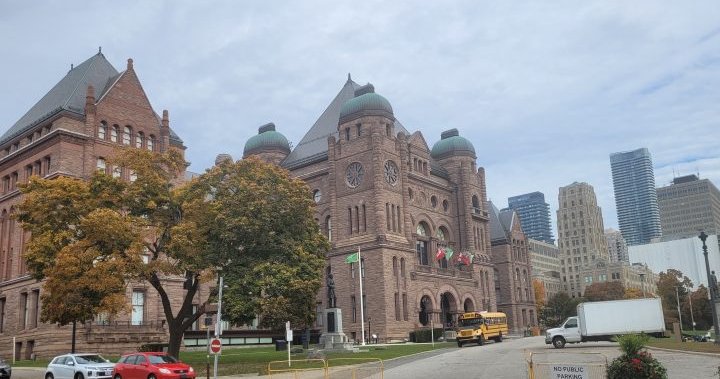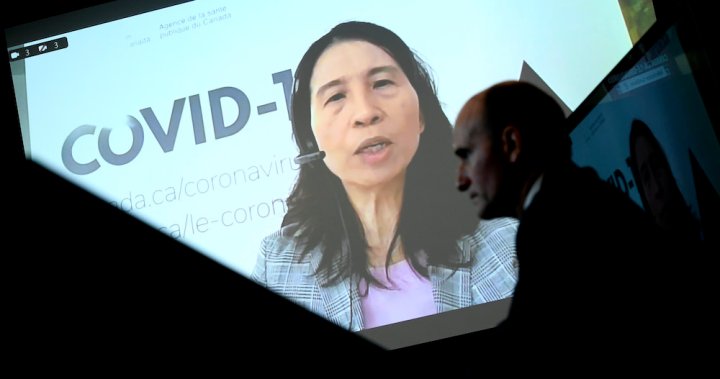Several indicators are now suggesting the Omicron wave of COVID-19 has peaked in Canada, health officials said Friday, but Canada’s top doctor isn’t ready to say whether the worst is behind us.
Dr. Theresa Tam said in a briefing Friday that while daily reported COVID-19 cases continue to be underestimated in case counts, there are positive indications that the overall level of the virus in Canada is on the decline.
“Multiple indicators suggest infections have peaked at the national level,” she said.
The national seven-day average of cases was down 28 per cent week over week as of Wednesday, Tam said, and while the test positivity rate remains high at 19 per cent, it’s also “gradually decreasing,” showing a drop of 14 per cent from last week.
Wastewater surveillance trends also show an overall drop in COVID-19 levels.
But lagging indicators such as hospitalizations continue to rise, Tam warned.
There are now an average of 10,800 people being treated for COVID-19 in hospital daily with 1,200 patients in intensive care units. A daily average of 168 deaths are also being reported, Tam said.
“This is why it continues to be important to limit spread as much as possible,” she said, noting children are increasingly being hospitalized by the virus.
Indications of Omicron’s peak nationally and in some parts of the country have led some provincial officials to relax restrictions.
Ontario’s chief medical officer of health Dr. Kieran Moore said Thursday that it’s time to “learn to live” with the virus as Canada’s most populous province prepares to start easing restrictions on Monday.

Asked Friday whether PHAC would echo that advice, Tam said she is “cautiously optimistic” but it’s too early to say what the months ahead will hold as officials await the results of studies to show whether immunity levels remain high in populations after the Omicron wave.
“It would be great to be driven by a bit more data,” she said, but added, “I think it is quite possible the Omicron virus will continue to circulate but will become more manageable.”
Read more:
B.C.’s top doctor signals major shift in COVID strategy, says contact tracing no longer useful
The main indicator Tam said she’ll be watching is whether hospitals and the country’s health-care system can handle a possible resurgence of the virus after the peak of Omicron has passed.
Tam noted that the inability to do proper contact tracing on the rapidly spreading Omicron variant makes it “similar to other respiratory viruses,” but did not say one way or another whether she agreed that, as British Columbia’s medical officer of health Dr. Bonnie Henry said last week, it’s time to treat COVID-19 like influenza or the common cold.

“All local and provincial health departments have a really difficult job trying to balance the disruption in society versus managing the surges,” she said.
Tam said the focus for individuals should be on staying home when sick and using other protective measures like masking and vaccination.
“Prudence is not only the most responsible approach in the short term, but also the most responsible approach in the long term,” she said in French.
© 2022 Global News, a division of Corus Entertainment Inc.










More Stories
B.C. to ban drug use in all public places in major overhaul of decriminalization | Globalnews.ca
Reduce salmonella in certain frozen chicken products: USDA to producers | CBC News
More than 115 cases of eye damage reported in Ontario after solar eclipse